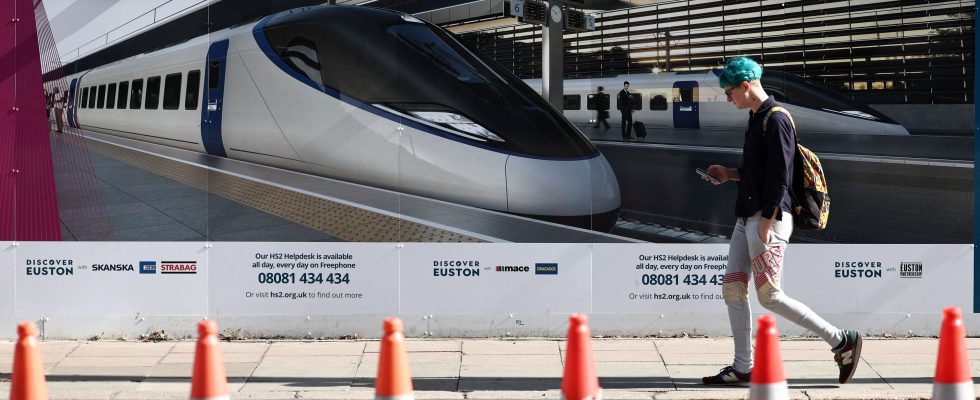“The country that invented the railways is not capable of building its first high-speed line, more than forty years after the first TGV in France!” And to say that the confidence of this senior British official is not exaggerated… The famous HS2 (High Speed 2) designed in 2003 and launched with fanfare by David Cameron in 2010 was originally intended to connect London to Birmingham, Manchester, Leeds and York. The idea was to open up the north of England, the cradle of the industrial revolution which is now impoverished, suffering from obsolete and overloaded railway lines.
Not only would HS2 offer more trains, but also connections that were two or even three times faster to connect the capital. Thus, Leeds should only be 46 minutes from Birmingham instead of two hours, enough to attract British and foreign investors and entrepreneurs. Boris Johnson enthusiastically took up the idea of ”levelling up” the northern regions, even if he had already cut back part of the initial plan due to exponential construction costs. In 2021, the high-speed link to Leeds was wiped off the map. So only the London-Birmingham-Manchester section remained. Alas, at the Conservative Party conference taking place – by an embarrassing coincidence – in Manchester, Rishi Sunak announced that he was abandoning the last stage of the project.
The British government, which has already invested 30 billion pounds sterling in the construction of 200 km of high-speed line between the suburbs of London and Birmingham, will not pay for the rest of the work, estimated at more than 70 billion. As a “good manager”, he says, Rishi Sunak will not go any further. William Hague, former leader of the Conservative Party and supporter of Rishi Sunak, sees things differently: “Poorly designed and managed against common sense, HS2 is a national disgrace and should never have seen the light of day.” For his part, former Prime Minister David Cameron severely judged Rishi Sunak’s decision, speaking of “a mistake, which the future will judge with severity”. And the rail industry said, via Darren Caplan, spokesperson for the Rail Industry Association, that it was “the most enormous and dismal turnaround in the history of British infrastructure.”
How did we get there? For some, such as George Trefgarne, strategy consultant, the worm was in the fruit. “The team behind the construction of HS1, the British portion of the Eurostar, had a completely different vision for HS2, but unfortunately it was not heard.” Their idea: connect the Eurostar to Heathrow airport, then follow the M40 motorway towards the North in order to minimize the impact on the environment. Instead, the chosen route required tunneling. As a result, the cost per kilometer of the high-speed track already built is ten times higher than in France. “But above all,” continues this expert, “this team had recommended building this line from the northern cities, and not from London. This would have had an immediate beneficial effect for the region’s economy.”
For others, the inconsistency of the various conservative governments in power for nearly 14 years is at the origin of the problem. “Uncertainty and continual political reversals prove deleterious for this type of major work,” said economist Noble Francis, director of the Construction Products Association. British manufacturers, whose order books are both too low and too changeable, no longer have the skills in-house and must call on subcontractors. As a result, costs increase and the execution chain is weakened. The largest British construction group, Balfour Beatty, whose annual turnover is around 8 billion euros, pales in comparison to its European counterparts, such as the French Vinci or the Spanish ACS, weighing respectively 61 and 31 billion euros.
Whatever the reasons, the observation is scathing and HS2 will go down as one of the worst defeats in British industrial history. This is the word chosen by Darren Caplan. “The signal sent to all potential foreign investors is terrible: the United Kingdom is incapable of carrying out major infrastructure projects.” And for those who prefer to see the glass half full and wonder what the 45 minutes between London’s northwest suburbs and Birmingham will be like [commercialisation prévue au plus tôt en 2033], the answer came: a long journey in a tunnel, with only 9 minutes of view of the landscape. Enough to continue to brood.
